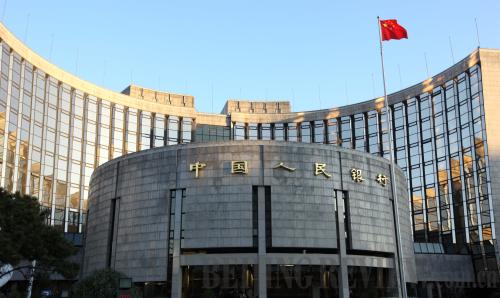|
 |
|
GAO XUEYU |
In a sooner-than-expected move to rein in liquidity, the People's Bank of China, the central bank, on January 12 ordered a reduction in the amount of cash commercial banks have available to lend.
Starting January 18, most commercial banks should put 16 percent of their deposits on reserve, an increase of a half percentage point. But the ratio at small financial institutions, such as rural credit cooperatives, would remain unchanged at 13.5 percent to support the agricultural sector, said the central bank in a statement on its website.
This is the first time the central bank adjusted the ratio of deposit that lenders are required to set aside since the end of 2008 and the first increase for the ratio since June 2008.
The central bank cut the reserve requirement ratio four times in the second half of 2008 when it came under pressure to provide a cushion from the ripple effect of the global financial crisis.
The move caught many analysts off guard and served as a fresh reminder of inflationary jitters and asset bubbles. The Shanghai Composite Index plunged more than 3 percent on January 13 on fears that a timetable would be presented to raise the benchmark interest rates.
Zhang Jianhua, Director of the Research Bureau of the People's Bank of China, waved aside the concerns citing that it does not necessarily signal a substantial tightening in the near future. Instead, it is just a neutral monetary tool used to offset excessive money supplies, he said.
"Preemptive measures to tame inflation are necessary at present since there is usually a time lag before the multiplier effect of the monetary adjustment filters through the economy," Guo Tianyong, Director of the Research Center of the Chinese Banking Industry under the Central University of Finance and Economics, told Beijing Review. "The better-than-expected export performance in December also gave the country some breathing room to close the lending tap a little bit without nipping the hard-won economic recovery in the bud."
The move is more of a risk warning than a real blow to commercial banks given their strong capability to lend, said a recent report from the Shenzhen-based First Capital Securities Corp. Ltd.
The required reserves would only freeze about 300 billion yuan ($44 billion) of funds at banks, a drop in the ocean of their deposits estimated at 60 trillion yuan ($8.8 trillion). In addition, the banks could easily fill in the gap by tapping excess reserves they have at the central bank, said the report.
Bubbling Concerns
Reversing an 11-month downward streak, the consumer price index, an effective gauge of inflation, rose 0.6 percent in November 2009 from a year earlier. Analysts believe the figure is set to see a significant run-up in the months to come due to a relatively low comparison base in 2009 and, more importantly, a deluge of low-interest bank lending that flooded the economy. According to data from the central bank, newly added loans denominated in renminbi totaled 9.59 trillion yuan ($1.4 trillion) in 2009, nearly double that of 2008.
The impressive lending spree quickly coaxed the growth engine out of low gear and put the country on a smooth track to meet its 8-percent growth target, which was up in the air in the early months of 2009. China's early recovery, which should have been a cause for celebration, was somewhat overshadowed by the negative side effects of the credit explosion that could take its toll on the economy.
Meanwhile, a more pressing issue surrounds concerns of real estate bubbles currently in the making across China. Real estate prices in major cities, like Beijing and Shanghai, have returned to, if not surpassed, peak levels previously seen in early 2008. Reports circulated that thousands of homebuyers crammed into the sales offices of new housing projects, snapping up hundreds of apartments in a matter of hours.
| 